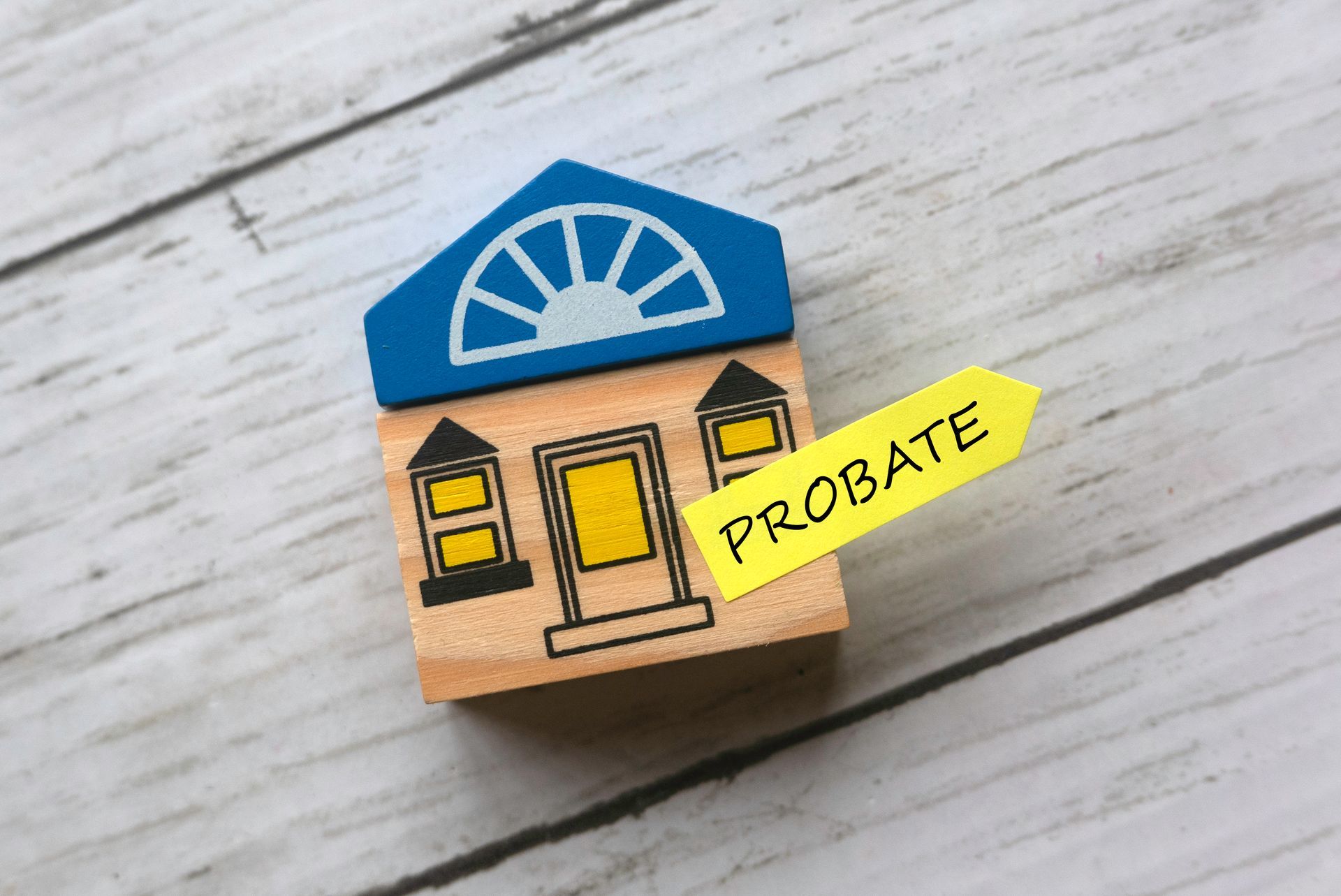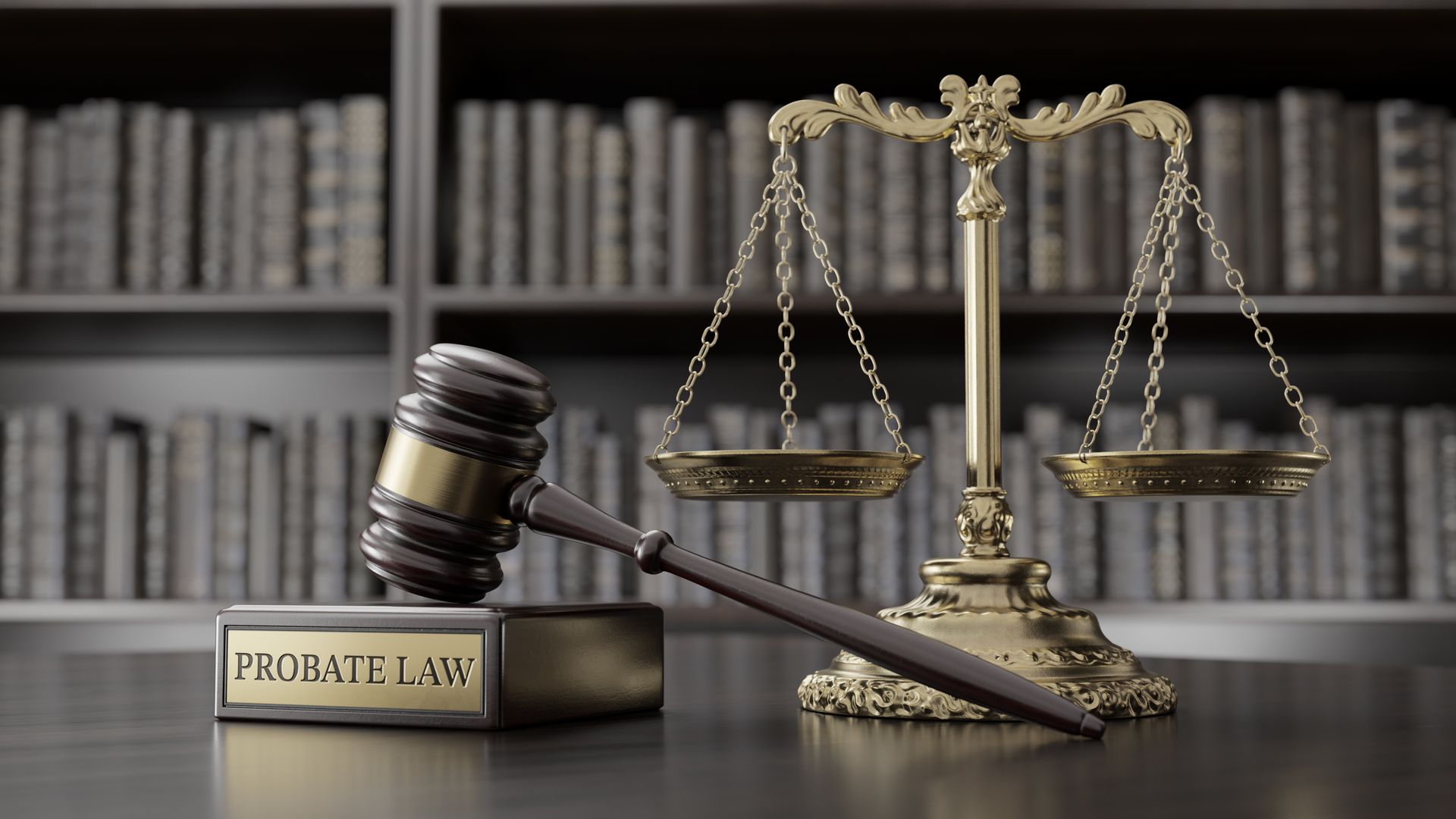Selling Real Estate in Probate

Probate is the court-supervised procedure of gathering deceased assets and distributing them to creditors and inheritors. Every will goes through probate. Probate is, therefore, a process of proving the will through legal court procedure. The result of probate proceedings is accepting a will as a valid public document that is the true last statement of the deceased. However, the probate procedure also applies in the absence of a will. In that case, the probate court will distribute property and assets according to the applicable laws of each state.
The largest asset of an estate is the house or other real estate. The goal of the probate procedure is to prevent fraud or other illegal activities in the distribution of the deceased real estate.
Personal Representatives
Filing a petition with the court is the first step in the probate process. Petitioner asks the court to open an estate and appoint an executor. That is a person responsible for administering the affairs of an estate and following the terms laid out in the will. The court never appoints a person as an executor automatically. Anyone who wishes to be an executor must file a separate petition with the court. A person applying to be an executor or administrator must list all heirs and beneficiaries in a petition. That is because, if appointed as an executor or administrator, a personal representative is responsible for paying any bills and mortgages from the decedent’s assets. The most common debts include property taxes, income taxes, funeral expenses, medical bills, and other unpaid bills.
Real Estate Personal Representatives
However, in most wills, the deceased already identified the person they wish to be the executor of their estate. But even in such situations, the court must verify the executor by issuing a Letter of Testamentary. That is a court document authorizing a specific person to be the executor.
In probate, there is a difference between an executor and an administrator. Both are considered personal representatives of the deceased person. However, an executor is a person who decedent names in the will to execute its terms. On the other hand, the administrator is appointed by a probate court when the personal representative is not named by the deceased.
Full Authority and Limited Authority
The court can grant a personal representative (executor or administrator) full authority or limited authority to administer an estate.
The personal representative with full authority can take most actions. Most importantly, it can sell real estate without court supervision. The courts are more likely to grant full authorization to personal representatives named by the deceased in the will (executors). Conversely, an administrator will less likely get full authority, especially in the absence of the will. Without full permission, a personal representative cannot perform any action unless the court approves it.
In any case, before getting formal approval by the court (full or limited authority), personal representatives are not allowed to take legal actions in administering the estate. Some acts are allowable when taken to prevent damage to the estate. That may be the case with bringing in the mail or preventing pipes from freezing. But you cannot hire contractors for repairs without formal court verification.
Private Sales and Public Sales
The personal representative can sell real estate within a private sale or a public auction.
In a private sale, the personal representative with full authority enters into a listing agreement on behalf of the estate. That is an agreement with a real estate agent or broker giving him the exclusive right to sell real estate during the agreement term. Private sales require an appraisal within one year of the sale time. That means that the property appraiser will perform a retrospective home appraisal. The estate is not valued based on inspection date but upon an earlier date – usually the date of death of the property owner. Also, the sale price cannot be less than 90% of that appraised value.
A personal representative with limited authority can also enter into a listing agreement, but only after filing a petition with the court and obtaining a court’s permission. The court must approve the commission, and the personal representative must show that an exclusive listing agreement is advantageous for the estate.
A public sale occurs in a public auction. Contrary to private sales, a public auction does not require a property appraisal, and there are no restrictions on the sale price. Nevertheless, the real estate sale price must still be proportionate to its value. In addition, the sale price must be within the reserve amount.
A good piece of advice is to file a petition to open probate as soon as possible. Since it might take weeks or even months for the court to appoint you as a personal representative, you should work with your attorney in gathering documents such as death certificates and original will to be ready for filing a petition.
Notice of Proposed Action
As explained, in a private sale, the personal representative with full authority enters into a listing agreement. When the real estate agent or broker finds a buyer, the personal representative will accept the offer. One of the last steps in finalizing the sale is providing the notice of proposed action. That notice includes the terms of the deal. After notifying, the personal representative can transfer the property and close escrow.
Certified Letters of Administration
Finally, the personal representative must obtain a certified copy of the Letters of Administration and submit it to the county where the real estate location is. After recording these letters to the relevant authorities, the personal representative can complete the sale.
Before closing escrow, the personal representative should open an estate bank account. The last step is to transfer the net sale proceeds to the bank account. That completes the procedure of selling real estate in probate.
The probate process can be daunting, and selling real estate in probate may seem like an overwhelming challenge. But with the help of an experienced attorney, you can effortlessly navigate through these complex legal procedures.
At
Blade & Blade PA, we are confident in our expertise. Relying on years of experience in service to our valued clients, we will provide you with custom-tailored advice that fits your unique needs. Call us today to schedule an appointment.










